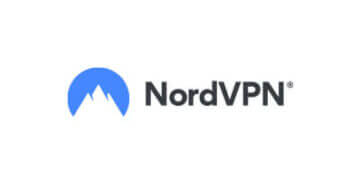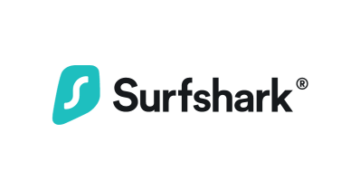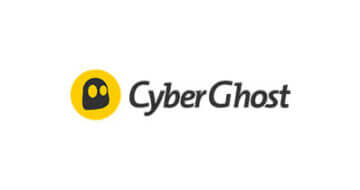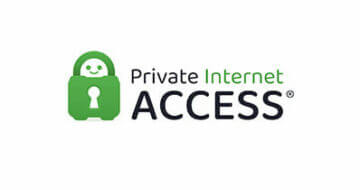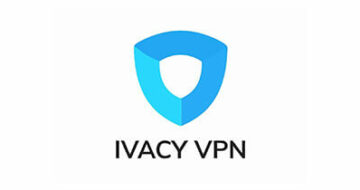Not all VPN service providers are the same. The good thing is that many of them have ultra-fast servers that will make you feel connected to the Internet directly. We are talking about the fastest VPN solutions you can use today.
VPNs act like intermediaries between your original IP address/connection and a website or another online entity. So, whenever you visit the Internet with an active VPN, you are not connecting to that place directly. First, you will connect to the VPN server and then to the website or streaming service. So, it is perfectly logical to expect internet speeds that are slowed down.
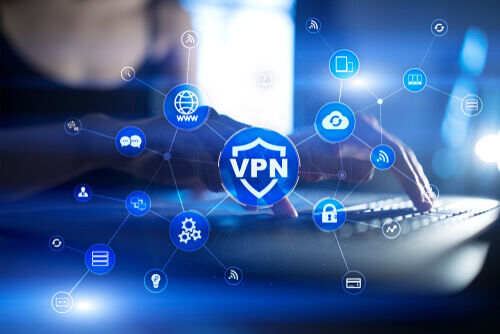
Things that influence VPN speed
“What is the fastest VPN” is a common question today, but before looking for an answer, you should consider a few things.
First, you can’t expect to get fast speeds when your initial internet speed is not that good. In theory, VPNs can improve the speeds slightly, but they will slow them down in most cases (as we said before).
Next, take some time to check the protocols employed by your favorite options. There’s no official list of protocols used by the fastest VPN solutions, and it seems that each has at least one unique protocol that makes them different from the others. However, several VPN protocols, including SSTP, L2TP/IPSec, Open VPN TCP, PPTP, and OpenVPN UDP, appear in almost all offers.
Remember that they are not the same, and some of them can affect VPN speed. Generally speaking, OpenVPN UDP usually keeps the speeds unaffected.
Then we have the location as a factor in this process. As some might have guessed, the distance of the VPN server you want to use impacts the overall speed. You can expect faster speeds if the server is closer and vice versa. The physical distance between your computer/mobile device and the VPN server plays a significant role here.
Next, the encryption technology used by the fastest VPN service providers can vouch for your online privacy and anonymity. Yet, when there’s a high level of encryption, the processing of information shared online becomes more complex, resulting in slower speeds. In general, 256-bit encryption provides slower connections than 1280bit encryption.
Of course, VPN technology keeps making tremendous progress, and these things should not be of any concern to modern users.
Another thing you should take into account is the bandwidth and load provided by the server. The best VPNs have powerful servers that vouch for better speeds. Lastly, you should also consider how you use the Internet. A wireless connection is often slower than a wired connection. Check your network setup and run some tests to see whether there’s a difference.
Top 5 fastest VPN services
Now that you know what affects VPN speed, we can proceed with the list of fastest VPN options today. Remember that some of these are free while most are paid-only solutions.
ExpressVPN

ExpressVPN is one of the brand names that you will find on many top lists dedicated to Virtual Private Networks. For example, it is often labeled as the fastest VPN for Android. ExpressVPN lives up to its name. It’s not unusual for users to get a speed of over 500 Mbps, thanks to this provider.
Of course, as we said before, the final result depends on many factors, but when you have such speeds in normal circumstances, that’s a good sign. Remember that Netflix recommends connections of 25 Mbps for Ultra HD streaming. In theory, this means you can use ExpressVPN on several devices simultaneously (multiple connections) to stream UHD content without any hassles.
Experts claim that ExpressVPN achieves this goal by using its own in-house security protocol known as Lightway. So, you will get top-notch protection and lightning speeds.
With this VPN service provider, you can use various streaming services like Prime Video, HBO Max, Netflix, Hulu, BBC iPlayer, and Disney +. It has a strict no-logs policy, powerful encryption, and a kill switch feature for continuous protection of your online anonymity. You can reach their live chat customer support for any questions and expect a prompt response.
NordVPN

If you are working on the fastest VPN review, you can’t ignore NordVPN because this is one of the fastest VPN solutions we’ve tried. This is another option that can go beyond 500 Mbps if the conditions are right. The tests we made were on various servers across the globe and at different times of the day. Like ExpressVPN, it also has a unique/exclusive protocol called NordLynx (based on WireGuard). The objective of this protocol is to deliver information as fast as possible without lowering users’ privacy and/or security.
Everything goes smoothly when streaming content with NordVPN, even with full HD and 4K content. In rare cases, some streaming services can disconnect NordVPN’s servers, but this problem is resolved by reconnecting to another server (they have thousands of servers). Of course, this option also has a zero-logs privacy policy and more or less decent plans and pricing.
Even though it’s not a free VPN service, you get a 30-day money-back guarantee once you pay for at least one month. If you are satisfied with its performance and are planning on using VPN for a long time, we recommend opting for the annual or 2-year plan to cut costs.
IPVanish
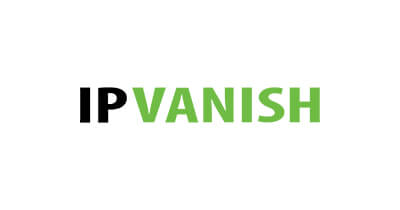
We have another big brand name on the fastest VPN list. The average speed provided by IPVanish, according to our tests, is 400 Mbps. Still, it’s not unusual to get maximum speeds of 900 Mbps. So, we encourage users to try several servers before starting their online sessions.
Of course, the speed depends on what they plan on doing on the Internet. Logically, downloading files, gaming, and streaming require faster connections while browsing websites is not something that requires special attention when using IPVanish.
With IPVanish, you get access to an application with a user-friendly design. There’s no limit regarding the number of connections. So, you can use this solution on your desktop computer, smart TV, router, smartphone, tablet, or other devices simultaneously without any problems. In addition to the features that modern users expect from a provider like this, you should expect some helpful options like split tunneling and kill switch. All these things promise a hassle-free experience.
CyberGhost
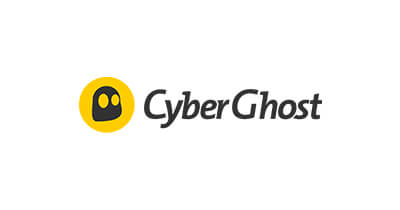
The speed you can expect with CyberGhost depends on the server’s location (among other things). So, we made a few tests with servers on different continents and got an average speed of around 550 Mbps.
CyberGhost is one of the VPN providers that keep upgrading its infrastructure. With every upgrade, users get faster and more secure connections. CyberGhost is also a VPN service provider with more than 8,000 servers. These servers are located in more than 90 countries in over 100 locations. Up to seven simultaneous connections are allowed to every registered user. The best part is that using this VPN in this way doesn’t affect the overall speed.
It’s good to know that CyberGhost uses the WireGuard security protocol. Also, you can expect pretty reasonable prices regardless of your chosen plan. The best one is the 3-year deal that will cost you over 2 dollars a month. The only thing we would like to see improved here is the mobile app which can look better and be easier to use.
Proton VPN
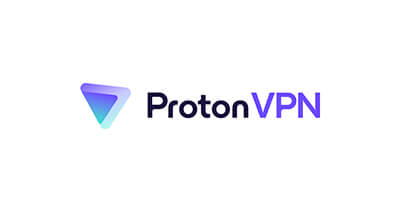
You can also use a free VPN if you don’t mind the servers’ locations. Proton VPN is one of the fastest free VPN we have encountered during our research. Of course, you cannot expect the same features as the ones found in paid VPNs, but Proton VPN still does its job. There are three servers on the list, and you can use just one device with this provider. The servers are in the Netherlands, Japan, and the United States.
The average speed you will get from this provider is around 200 Mbps. On the other hand, users should remember that this is not a VPN service for streaming video content. You also can’t find ad blockers or malware blockers. However, if you want a free solution for completing a task requiring a VPN and fast speeds, you can’t go wrong with Proton VPN.
